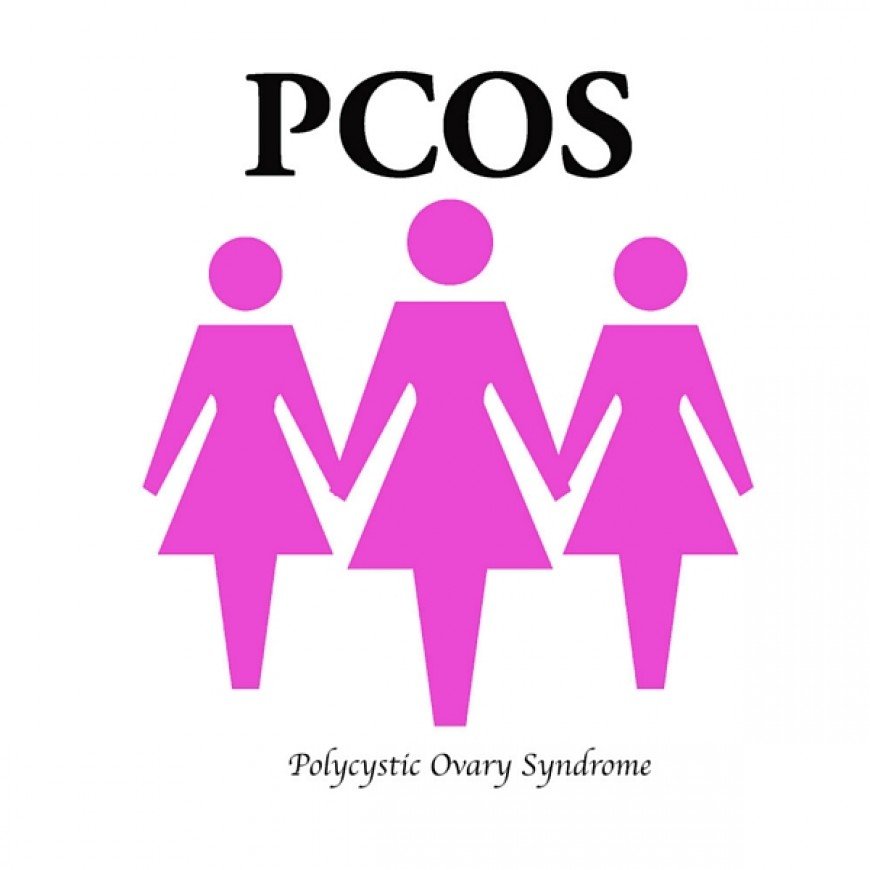Polycystic Ovarian Syndrome- An emerging disease
June 25, 2018 | Monday | Features | By Dr. Duru Shah
PCOS is one of the prominent causes of infertility, in which ovulation does not occur or occurs irregularly.
PCOS is a gynecological hormonal disorder, which affects 8-10% of women in their reproductive age. It affects women of all ages, from puberty to menopause. The presenting complaints may differ from cosmetic issues like facial hair and acne, irregular periods and inability to conceive, and chronic diseases like diabetes mellitus, high blood pressure, high cholesterol, and uterine cancer. 80% of girls or women are obese and quite a few have excessive pigmentation in the nape of their necks, underarms, groins etc.
PCOS is one of the prominent causes of infertility, in which ovulation does not occur or occurs irregularly. It is possible to assist infertile patients with various forms of medications which help ovulation and various other infertility treatments. As a matter of fact at our Center, we see a maximum of infertile women with PCOS.
As of today, the cause for PCOS to occur is not known, but a lot of research is ongoing and hopefully we should have an answer in the near future. But we do know that PCOS is a hormonal disorder which is genetically determined, with insulin resistance (relative lack of insulin hormone leading to diabetes) as the root cause. It occurs due to an interaction of genetic and environmental factors such as obesity. It is a life-long condition which cannot be completely cured but can definitely be kept under check. PCOS is also accompanied by raised androgen levels ie. excessive male hormone leading to acne, facial hair and loss of scalp hair.
How do we diagnose PCOS? This is done by a detailed history including that of periods, weight gain, hair growth, acne, hairloss on the scalp, and pigmentation, a detailed examination, blood investigations and ultrasound.
The treatment is tailored based on the lady’s symptoms, test results and the desire to get pregnant, or not.
- Lifestlye modification is the first line treatment for PCOS. A low calorie diet and regular exercise is the key to weight loss. Weight loss can improve fertility, regularize periods, reduce the insulin resistance and lower androgen levels. A weight control program with regular aerobic exercises, preferably under a nutritionist’s guidance, is highly recommended.
- Birth Control Pills: These can be used in women not keen to get pregnant. The pills regulate the periods and correct excessive hair growth and acne by reducing the male hormone. By ensuring a regular period, they also decrease the chances of a womb cancer.
These can be used long term if done under medical supervision. Newer birth control pills, are extremely effective and are low dose, hence less likely to have side effects. Needless to say, they are not an option for women wanting to get pregnant.
- Insulin Sensitizing Drugs: Drugs that improve insulin resistance and lower insulin levels include metformin. Metformin promotes fertility and regularizes periods, promotes weight loss with exercise, and improves insulin sensitivity. This can be also given to women desirous of childbearing. There are studies which conclude its safety during pregnancy. Metformin, if used during pregnancy, prevents miscarriages, gestational diabetes and high blood pressure during pregnancy in such women.
Metformin is also indicated if the lady’s blood sugar and insulin are high, or if she is pre- diabetic or already a diabetic.
- Ovulation inducing drugs: These are the medications that help infertile women ovulate. These include tablets like Clomiphene and Letrozole, and hormonal injections like FSH & LH. These medicines are given from the 2nd/3rd day the period. After taking these medicines, ovulation is usually monitored by serial ultrasound to assess the follicular growth and to avoid problems like too many eggs getting mature (Hyperstimulation). Some patients may require assisted reproduction such as IVF or ICSI if they do not get pregnant with simple ovulation induction and intrauterine insemination.
- Anti-male hormones drugs/ Antiandrogens: These are used when the androgen levels are high. They include oral medicines like Spironolactone & Flutamide or creams like Elfornithine. Effective contraception is required when using any of these drugs as they can affect the male fetus if a woman gets pregnant whilst on these treatments. These drugs are not used long term.
As already said, PCOS is a lifelong condition, which can have serious cardiovascular and other consequences, if not kept under check. It is therefore important, that the PCOS patient should see her doctor at least once in 6 months, so that her treatment can be optimized and any necessary referrals made. The management may be multidisciplinary, involving the gynaecologist, endocrinologist, physician, dermatologist, nutritionist, fitness expert etc. Nevertheless, a PCOS lady can help herself by maintaining a healthy life style. Regular exercises and healthy eating is the part that she can play and will work wonders in keeping her PCOS under control.
The PCOS Society was recently launched in India as a multi specialty professional Organization which consists of gynecologists, dermatologists, endocrinologists and all other specialties involved in the care of PCOS women. As the Society grows, its agenda is to create a PCOS Support Group for women with PCOS.
Dr. Duru Shah - Director, Gynaecworld , Center for Assisted Reproduction & Women’s health; Panel Consultant – Breach Candy Hospital & Jaslok Hospital










